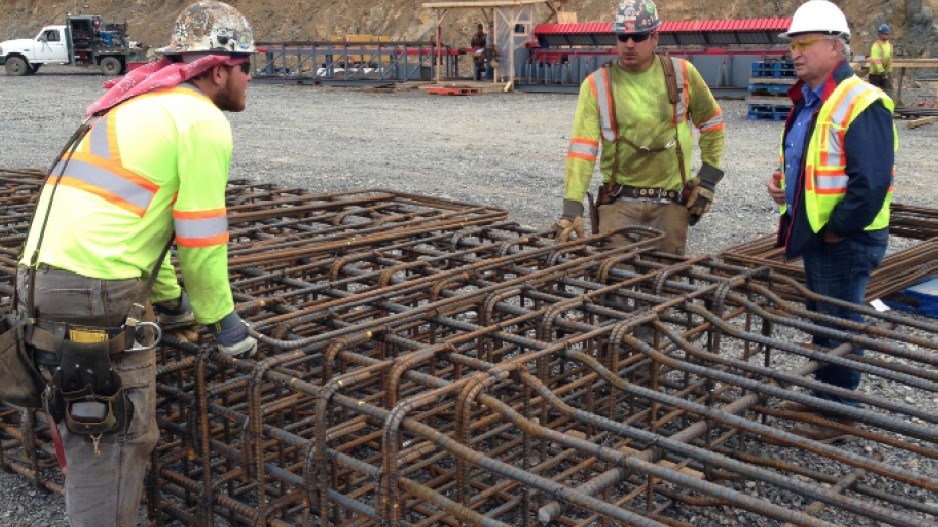As his title would suggest, Bill Bennett, B.C.'s minister of energy and mines, steadfastly believes that B.C. is an attractive jurisdiction for mineral development.
But after the headline-grabbing rejection of Taseko Mines' (TSX:TKO) controversial New Prosperity project by the federal government late last month, Bennett wasn't sure the mining world would share his rosy view of the province, despite Victoria's support of New Prosperity.
To quell any such fears, and to support the dozens of B.C.-based mining companies in attendance, Bennett travelled to Toronto last week to preach the gospel of B.C. to the international mining community at the Prospectors and Developers Association of Canada's (PDAC) annual conference, the country's largest mining show.
The response he received from PDAC attendees was positive but unexpected, Bennett said.
"I'm a little bit surprised, but pleasantly surprised," Bennett told Business in Vancouver. "Because of how open and transparent our support of the Prosperity project has been, there is no question in anybody's mind whether B.C. supports mining. If anybody is ending up being criticized it's not the government of British Columbia. It's not B.C. that folks are concerned about, it's the people making the decisions."
Despite Bennett's optimism, some remain critical of B.C. as a mining hotbed. Brian Battison, Taseko's vice-president of corporate affairs, praised Bennett's work but said Taseko is discouraged from investing more money in the province after the lengthy New Prosperity deliberations.
"We have invested heavily in the province," said Battison, "but in regards to new mine development, it is obviously a tough undertaking."
According to the Fraser Institute's Global Mining Survey last week, B.C. ranks 11th in Canada and 32nd globally for its mining investment attractiveness.
The ranking is gleaned from responses from global mining executives on issues such as taxation, the quality of a jurisdiction's geological database and the level of uncertainty over land claims, among other factors.
Although New Prosperity was rejected for environmental reasons, the issue of land claims is associated with the project. The Tsilhqot'in National Government (TNG), a group consisting of five First Nations communities in the Cariboo region, has argued New Prosperity would be on traditional Tsilhqot'in land. The Tsilhqot'in have fought to halt logging and mining on their land – a 4,000-square-kilometre tract west of Williams Lake – in the courts.
Alana Wilson, Fraser Institute senior economist, said survey responses for B.C. "are picking up on uncertainty with First Nations."
Marilyn Baptiste, a councillor with the Xeni Gwet'in First Nation, a member of the TNG, said Ottawa's decision on New Prosperity is a positive sign to those looking to do business in B.C.
"This says business needs to be serious and have a solid plan if they want to rip up the earth."
B.C.'s standing in the Fraser Institute report, however lacklustre, is an improvement over the past. When the Fraser Institute began publishing its mining list in 1997, although it only tracked provinces at the time, B.C. finished last. •




